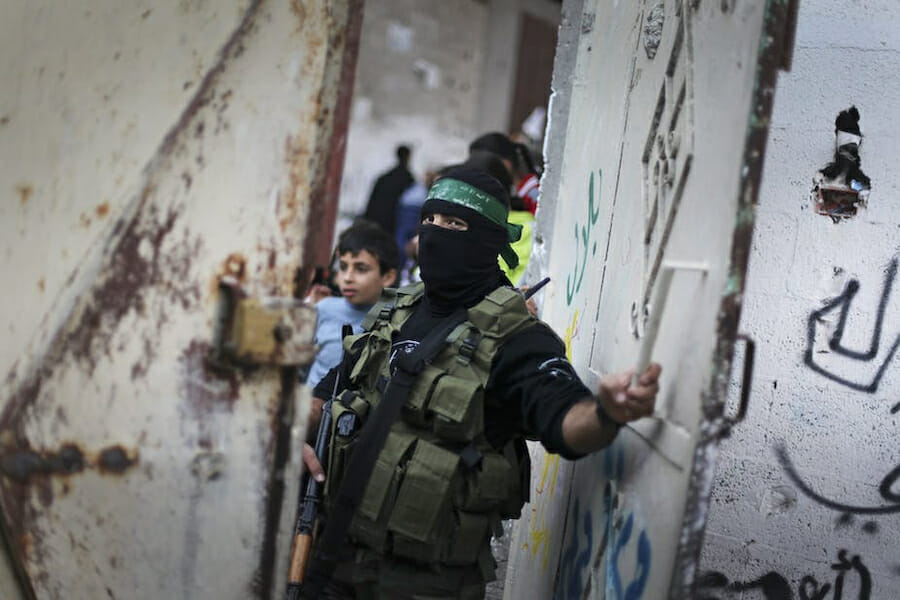
Gaza Ceasefire Leaves Unclear Picture of the Prospect for Peace
Israeli air raids on Gaza have stopped. Palestinian rockets are not being fired at Israel. The cease-fire seems to be holding. After seven days of war, and 157 Palestinian deaths (the great majority of whom were hapless civilians), international leaders are congratulating each other for achieving an end to hostilities. But the obvious question is, how long will it last? The war and the ceasefire negotiations highlighted a number of factors that are less than reassuring for the prospects of peace.
The United States and Australia made it clear during the war that they stood firmly with Israel. No objections to Israel’s disproportionate use of force. No condemnation of civilian death during Israel’s air raids. No questioning of the Israeli interpretation of self-defence.
The Obama administration found the perfect opportunity to reaffirm its commitment to the special bi-lateral relationship which had become somewhat of a hot topic during the electoral campaign. But this was not a campaign trick. This reaffirmation came after Obama’s electoral victory and pointed to an established pattern of pro-Israeli policies which has been the subject of heated debate in the United States.
For its part, Israel demonstrated once again that it has no regard for international law. The Israeli leadership and the great majority of the Israeli public work on the assumption that the world is ready to sacrifice Israel. This is the dominant political point of view, with obvious reference to the WWII experience and regenerated through institutionalised reminders of the Holocaust. Consequently, Israel has simply ignored UN rejection of its occupation of Palestinian lands.
It has rejected past rulings by the International Criminal Court on the illegality of the separation wall and checkpoints that deprives the Palestinians of their livelihood. And it has mitigated international media reports of high civilian casualty rates during its recent aerial bombardment of Gaza as collateral damage – a small price to pay for Israel’s right of self-defence. In short, Israel acts with impunity.
Egypt has managed to get a few brownie points for leading the negotiations and securing a deal. Egypt under the leadership of the Muslim Brotherhood is proving itself to be a reliable partner for the United States and, by extension, Israel. This is of course the very image that the Brotherhood President Mohammed Morsi has been hoping to project. The Brotherhood has been sensitive to suggestions by some right-wing analysts that it will jeopardise relations with the United States and cannot be expected to honour bilateral agreements with Israel, reached under the now-deposed Hosni Mubarak regime. From day one, the Muslim Brotherhood had set the task of proving such suspicions wrong.
President Morsi re-confirmed Egypt’s agreements with Israel and continued to maintain the security fence that separates Egypt from Gaza. Egypt under the Brotherhood has also made it clear that it has no desire to form an alliance with Iran. The Muslim Brotherhood has achieved a major diplomatic feat. It has gained recognition in Washington as a predictable partner. But this achievement has its limits. The only reason Israel agreed to the ceasefire was that the aerial bombardment had reached its maximum effect.
On the eve the ceasefire, the Israeli leadership was debating whether to deploy ground troops into Gaza. This idea was rejected due to the high risk to Israeli troops. The Israeli public had welcomed air attacks but was much less inclined to put soldiers’ lives at risk. After seven days of bombardment, the military operation had run its course. The ceasefire offer was a timely gift to help Israel save face and claim flexibility.
On this messy geopolitical chess board, Iran has been sitting on the sidelines. Iran had nothing to offer. Iran could not prevent Hamas from agreeing to a ceasefire, demonstrating a major shift in alliances. While Iran had been courting Hamas after it took over Gaza in 2007 and has supplied its rocket stockpile, its political influence over Hamas has begun to wane following the ascendancy of the Muslim Brotherhood in Egypt. Iran’s blatant support for Bashar al-Assad has further alienated the Muslim Brotherhood and Hamas who feel an affinity for the anti-Assad insurgency.
So we have a mixed picture for the prospects of peace. Iran’s declining regional influence and the Muslim Brotherhood’s eagerness to act responsibly are positive developments for peace, but they are not enough to tip the scale against overwhelming odds. Israel’s continued occupation of Palestinian lands, and the Gaza blockade which is nothing short of collective punishment for the densely-populated inhabitants of the Gaza Strip continues. The Israeli leadership reserves the right to exact revenge with disproportionate force against missiles from Gaza (although their combat value has proven to be next to none). And the United States has made it abundantly clear that it will not step away from Israel, and will endorse Israel’s narrative of self-defence.
This article was originally published on The Conversation. Read the original article.

